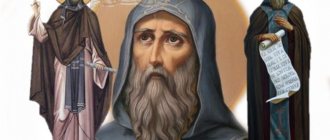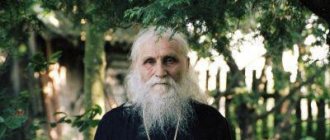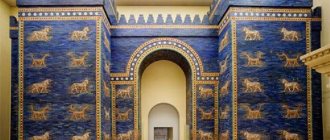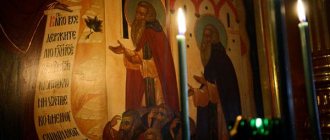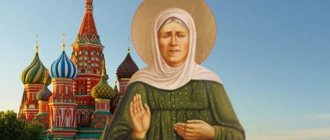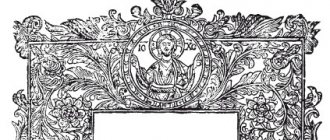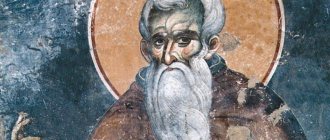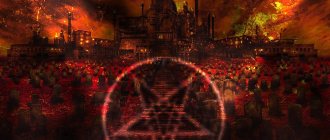On December 7, 2022, Archimandrite Ephraim, who served at the Monastery of St. Anthony in Arizona (USA), passed away. For many years he was known not only as an Athonite elder, missionary and ascetic, but also as a seer. Thanks to his gift of foresight, the elder could see the future not only of individuals, but also the fate of states.
The elder warned us that in the near future humanity will face a terrible event that will radically change the whole world. What was he talking about?
Who is the Elder of Arizona
Ephraim of Arizona devoted his entire life to serving the Lord. He considered his calling to be missionary - preaching Orthodoxy. The archimandrite visited many countries, was the abbot of one of the oldest monasteries on Mount Athos, and revived monastic life in abandoned monasteries.
During his missionary life, Elder Ephraim founded more than twenty Orthodox monasteries throughout the globe. The Archimandrite was repeatedly tempted by evil forces and interfered with his endeavors. Sometimes Ephraim was visited by terrible visions, but he experienced them with all the fortitude of his spirit. His unshakable faith in the Lord always helped him.
One day he needed to have a minor operation. His spiritual children offered to go to Canada for this. Archimandrite Ephraim spent several weeks in North America, where, among other things, he communicated with many representatives of the Greek diaspora, and became convinced that their spiritual life had fallen into complete decline.
The elder decided to stay in Canada and then moved to the United States. Ephraim organized the largest Orthodox monastery in the state of Arizona - the monastery of St. Anthony, for which he began to be called “the main Apostle of America.”
Ephraim of Arizona often saw prophetic visions. Many of his predictions came true during his lifetime, but there are prophecies for which the time has not yet come. He also felt the imminent approach of his death. He gave his final instructions to his spiritual children and monastic brethren, put his earthly affairs in order, and spent a lot of time in prayer. Ephraim told the monks that he would “return home” very soon. Knowing about his prophetic gift, everyone understood that the elder meant his own death.
In his last prayers, Ephraim of Arizona asked the Lord to make life easier for people in connection with the onset of difficult times. He asked for forgiveness for everyone, including those who forgot about faith and repentance.
The soul of Ephraim of Arizona flew to the Lord on the evening of December 7, 2019, in the ninety-first year of his life.
What is the elder accused of?
- Lord! There is a Russian proverb “there is no smoke without fire.” What are the reasons that led to today's events? Please dot the “i”s!
– If you wish, with pleasure! Of course, I’m not an expert, but as far as I know, I’ll try to explain! In December 1987, I returned from America to Greece, shortly before Christmas. After 40 days he left for Athos, where he spent six months near Elder Paisius. And then I told him: “Geronda, since I have already come to my senses and am ready, I would like to enter a monastery.” Then I felt in my soul a desire to visit Vatopedi. I assure you that the state of affairs there was tragic.
No normal person could stay there. The entire monastery was one ruin. It was inhabited by 7 monks who found it difficult to lead a spiritual lifestyle. On the eve of my departure, Father Ephraim and 15 young monks came to Vatopedi with him. He arrived there in accordance with the decision of the Patriarchate of Constantinople and slowly began to restore the monastery. The first thing he realized was that in order to restore the monastery and restore order in it, he needed to find money. The library, archive, church utensils - everything was scattered in different directions. We started looking through and organizing papers. In the basement of the monastery, the monks found 100 bags of valuable ancient documents, thrown away like garbage. It turned out that the monastery owned a large property.
– But how is it possible to consider the property valid based on ancient documents?
– And in Europe this is the case. Among the papers were found decrees of the Byzantine emperors, subsequently re-recognized by the Turkish authorities, then after the liberation of Greece and finally at the beginning of the twentieth century. Vatoped turned to a large law office to put these documents in order and own his property legally. No one has ever doubted the validity of these property ownership grams.
Some of the ministers undertook to help with real estate registration. This was in the 90s. And it continued until 2003. During the paperwork process, problems arose with people who settled in these areas and used them without the appropriate legal basis. Then the previous government proposed - in order not to drive people away from their places of residence, which could cause discontent among the residents, to leave them, handing them documents for the ownership of this property, and in return offer the monastery real estate in another place. The monastery did not want this, but was understanding and agreed to this deal.
In 2008, to everyone's surprise, there were those who stated that the total value of the real estate transferred to Vatopedi exceeded the value of the properties that belonged to the monastery according to the Byzantine chrysobuls. Then they announced that the monastery had deceived the officials, and also that the Byzantine chrisovuls, Turkish firmans, decisions of 1922 and 1933 were not valid today. This served two purposes. The first is to denigrate the ministers and officials who held the highest positions and signed the papers, in order to subsequently overthrow this government. And the second is to strike a blow at the Church, saying “why does the monastery need money!” The matter came to trial. The Greek court decided to exempt politicians from accusations... the government fell, and no one suspected that, in the end, Father Ephraim would be guilty of this (Metropolitan Nicholas laughs...). A simple truth, clear to a free-thinking mind, but incomprehensible to a heart overwhelmed by hatred.
Yesterday it was announced that the reason for the detention of Father Ephraim is not that he is guilty, but that he is “dangerous.” And how can a person be dangerous who, three and a half years after the scandal came to light, has not done anything terrible? All this time he was not dangerous, and now he has suddenly become dangerous, and he urgently needs to be imprisoned. What can he do? Sell this lake again, or find another one for sale, or go to Russia with gifts and never return from there...? It is said: “because he has a penchant for criminal activity” (the bishop laughs). It's actually tragic! This is complete absurdity!
I told some journalists today: “Judge for yourself - if a person has a penchant for criminal activity, who will tell us about it? A certain lady judge, or one hundred and twenty fathers who entrusted their lives to this man, or those Europeans who rewarded his labors in restoring the monastery? Or maybe they will tell us about this, tens of thousands of Greeks who were treated to hospitality in Vatopedi. Or millions of Russians who are crying today about what happened?” This is the truth. Everything else is lies and passions.
We in the Church do not seek our own truth. We confess the truth and trust that God will not abandon us. And I assure you that the three youths in the cave of Babylon did not pray for the fire to go out, but repented before God for the sins of others and glorified the Lord, His love and greatness. The little that God could do was to extinguish the flame and scorch Nebuchadnezzar. And the great thing is that the fire continues to burn, and the youths are watered by the presence of the angel. Sometimes God does small things, and sometimes great things. He Himself chooses what to do!
– In Russia, what happened in the Vatopedi Monastery is perceived differently. The most diverse, both plausible and incredible, reasons for the “scandal” are put forward. What are they, in your opinion?
– I personally think that the so-called Vatopedi scandal was provoked solely for political purposes. This confirms that to date no clear evidence of Vatopeda’s guilt has been found. Only speculation is given.
I believe this scandal has two purposes - to overthrow the previous government and to deal a blow to the Church. Therefore, you see: none of the officials who are said to be “guilty” are held accountable to justice, and not one of them has appeared in court. Gerond Ephraim was brought to prison by the partial and hateful attitude of some people towards the Orthodox Church. And I think that the holy and spiritual voice that is heard from Russia from the Russian brothers in our support will cover the anxieties of the Greek people and the Greek Church. We in Greece did not know what a prison was or what injustice was. We are slowly starting to learn about this now. And you have already been taught by your history what it means to go to prison on an unfair charge. Therefore, we are very grateful to you for this confession. You not only showed your love for our Church and for Elder Ephraim, but also made up for our lack - what we did not do, you did.
At this moment, two holy feelings fill my soul. The first is pain for the unjust condemnation of Elder Ephraim (and therefore I think that the one who stands next to him stands next to the crucified Christ). And the second is a feeling of great joy and gratitude to the sister Russian Church. You have done much more than we expected and much more than we deserve. This is true!
The Elder's Prophecies
Two weeks after the death of the archimandrite, his prophecies were published in many Greek newspapers, in which he warned of future events.
The most dangerous time in history
It was not for nothing that the elder was so worried about the fate of the world. Before his death, he said that one of the most dangerous periods in the entire history of mankind was about to begin - a disaster of enormous proportions was approaching.
The cause of the disaster lies not only in climate change on the planet, but also in the increasingly worsening aggression of people towards each other.
Nowadays, few people believe in World War III. We are accustomed to the fact that all wars are the whistling of shells, the roar of missiles, blood and pain. Elder Ephraim said that times are changing - everything will look completely different. The cunning, envy, anger and greed of people will become the cause of a secret war, which in its scale will be incomparable to any other.
It is possible that it has already begun, and no one except the Lord can stop what is happening.
Mutual aid
Elder Ephraim in his cell.
Arizona. Photo from the site apantaortodoxias.blogspot.ru “When a person wants to cross the sea and reach the opposite shore, where his deliverance awaits, he thinks, calculates his strength and, convinced that he can do this, rushes into the sea and swims. When he swims, he begins to get tired, the waves seem more ferocious than at the beginning. Fear begins to creep into his heart.
Fear takes away physical and mental strength even more. If he casts aside fear and thinks that there is only one way out - to gather all his strength to end up on the other shore (because otherwise fear will drown him), then by doing so, he will swim to the other shore and be saved. If there are two swimmers and one gets scared and begins to drown, then the second one will give him courage, and so he will ultimately be saved.”
A global event is coming
A person cannot live without sleep. But what is sleep really? Where is our soul at this time? According to the elder, sleep can be compared to death. When a person sleeps, his consciousness is absent from this world. Time is not felt.
And every awakening for us is like being born into the world. And this blessing was given for a reason. For every new dawn, every new day you need to thank the Lord. This is very important - this is what Ephraim of Arizona said. You need to pray sincerely for yourself and for your loved ones. And the salvation of the soul will be granted.
The elder was convinced that the salvation of the soul must be obtained not in the next world, but here on Earth. And he is not the first seer to say so. Ephraim said that when he is gone, time will speed up and global changes will begin.
As if from a cornucopia, troubles and adversities will fall on us, which we cannot cope with.
“I ask you to tell everyone that they need to repent, ask for forgiveness from God.”
After the death of the seer, a pandemic began that swept the whole world. But most likely the elder was not talking about her. Coronavirus is just the beginning. The main thing awaits us ahead.
Fire and Water
If we analyze the prophecies of the Athonite elders, Russian saints and righteous people, then we can confidently say that something will happen that will bring fire and terrible drought. After this, floods and floods will begin, which will extinguish the fire. Archimandrite Ephraim said:
“Sin is fire. We drink holy water to extinguish this fire.”
Agree, this is very symbolic. Our planet is tired of dirt and filth, and very soon it will decide to cleanse itself, calling first fire and then water.
Tears of repentance have the same power as holy water. They too can cleanse a sinful soul. This is why it is so important to pray not only for yourself, but also for others, not forgetting even your enemies.
Remember God's commandment - love your neighbor as yourself. And if you don’t have the strength to love your enemy, then you need to at least forgive him with all your heart. You must remember that if you do not know how to forgive, then one day the Lord may not forgive you.
Archimandrite Ephraim: “Do not look for joy outside yourself, it is inside”
Conversation at the Novo-Tikhvin Monastery, October 2011
| Archimandrite Ephraim of Vatopedi. Photo: A. Pospelov / Pravoslavie.Ru |
– Your Eminence, Most Reverend Masters, venerable fathers, dear mother, brothers and sisters!
I am happy to be in your monastery for the second time. As you know, this time we came with the holy Belt of the Mother of God. This shrine is special, from a spiritual point of view – precious. By the providence of the Mother of God, we brought the shrine to this city to consecrate it, and, of course, for the sake of the monks living here. We know how pleasing the Mother of God is to the life of monks and the existence of monasteries in general. From the history of the Church there are many cases when the Mother of God appeared to immaculate, pure souls and said: My icon is there, take it and build a monastery there. And the Holy Mountain, the only functioning monastic state, is entirely dedicated to Her. The Blessed Virgin is the Patroness of Athos. She Herself ordered Saint Peter of Athos to go and live on the Holy Mountain and said that he and his companions would be under Her direct Protection: “I Myself,” said the Mother of God, “will be your Patron, Healer and Nourisher.” Appearing to the Monk Athanasius of Athos, She said the same thing as to the Monk Peter, adding: “I will be your Economist and will take care of everything for you, but I want only one thing from you - keeping your monastic vows.” And to this day, we, the inhabitants of the Holy Mountains, enjoy Her patronage and special intercession. And therefore, my dears, the fact that you and I have come to monasticism is a great blessing. Our blessed elder Joseph of Vatopedi very often told us: “There is no greater blessing for a person than when God calls him to monastic life. And let the monk never forget for a second that he was called by God Himself.” When we remember how we left the world, what accompanied us at the same time, we see that the grace of God was above us, it was she who accomplished our renunciation of the world, she brought us to the monastery. Here we must certainly fulfill three virtues in their entirety: non-covetousness, obedience and chastity. These virtues introduce us to spiritual life, root us in it and help us achieve the fullness of the stature of Christ.
Monasticism is the path of perfection, and therefore we, monastics, are called to acquire the fullness of grace. Recently one monk came to me and said: “You know, I don’t have time to read.” I tell him: “Son, a monastery is not a place for reading. You came to the monastery not to read, and not even to pray. You have come to renounce yourself and submit yourself to a spiritual leader. If you completely surrender yourself to obedience to the abbot and do not try to make yourself more comfortable in this life, then you will strictly observe the commandment of Christ. He never spoke by chance, but always unmistakably, and He told us, the monks: “If anyone wants to follow Me, let him deny himself and take up his cross and follow Me.”
The one who fulfills his desires and dreams in the monastery does not renounce himself. A monk has no dreams, no aspirations, no plans at all. He comes as if condemned to death, raises his hands and says to the abbot: “Do with me what you want.” Thus, he fulfills another word of Christ: “Whoever wants to save his soul will destroy it.” And if a monk understands the meaning of these words and puts them into the basis of his life, then he will have a correct idea of \u200b\u200bthe feat, and all his problems will be solved. He becomes the organ of God's Providence and fully imitates our Lord Jesus Christ, Who, although sinless, came and seemed to stand on a par with us, the repentant, as if also demanding repentance. Christ not only gave us from Heaven some separate commandments that we must keep, but He Himself came down to us and showed this in action, in practice. And what did He tell us absolutely clearly? “I have come, not to do My will, but the will of the Father who sent Me.” Our blessed elder Joseph told us during conversations: “What do you think, brothers, if Christ fulfilled His will, would it be sinful? However, He did not do this in order to be the One who first created and then taught.” The will, the desire of a person is a copper wall. Not clay, not stone, not cement, but copper, separating man from God. And blessed is the monk who obeys. Obedience is not discipline, it is something else, obedience is when you give your heart. Monastic life is completely Christ-centered. Therefore, the elder does not use the obedience of his children for personal purposes; his task is to convince the monk to subordinate his will to the will of God.
If you have questions, ask and I will answer if I can.
– How to notice in time the appearance of a sinful thought and cut off the attacking passionate thoughts even at the level of pretext?
– Don’t think too much; you should treat them with disdain. One monk of our monastery once came to me and said: “I need to confess.” And I see he’s holding a notebook. I ask him: “What is this?” “This is my confession,” he answers. “Come on,” I say, “I’ll read your notebook.” Imagine, 30 pages of thoughts! I tell him: “Do you think you should confess all the thoughts that come into your head? You’ll end up in a psychiatric hospital soon!” He even wrote down the thoughts that came to him during the service. I told this brother: “The thoughts that come mean nothing.” Even if the mind inclines toward them for a moment, it means nothing, absolutely nothing! Forget it! You need to confess only those thoughts that do not go away for a long time, remain in the mind for days or weeks, and in general thoughts are soap bubbles.
I'll tell you another incident from my life. One young man, a churchgoer, succumbed to gluttony: he wanted to eat kebab on Wednesday and went to buy it. He comes, and the seller says: “Sorry, but I just sold the last one.” This young man then comes to me and says: “So and so, I would eat kebab!” And I told him: “But you didn’t eat it, did you?” That's all! You succumbed to your thoughts, but you did not sin in practice.” How are we doing? First a thought, then it turns into a word, and then goes to action. But a sin is considered committed when it actually occurs. Therefore, be careful and do not be particularly occupied with thoughts, despise them. “The thoughts of mortals are fearful” (Wisdom 9:14), literally – “the thoughts are cowardly.”
– Father Ephraim, what do you think monastics in Russia need to pay special attention to now so that our monasteries strengthen and prosper?
– You need to pay attention to obedience. A monk must obey and have no attachments; This especially applies to women. I have one convent, and when I arrive there, it begins: “Geronda, pray for my aunt, for my nephew, for my nephew’s neighbor. Geronda, pray for my brother, for my sister’s friend.” No need to deal with the needs of aunts, nephews and their neighbors. Pay attention to this, because the virtue of wandering is especially difficult for women; they have a very strong attachment to relatives. They begin to pray earnestly for them, but under the guise of prayer for their loved ones, their hearts again cling to them. And obedience tells us to surrender ourselves completely to Christ. Whoever, He says, does not renounce all his property cannot be My disciple. These are the words of Christ, Who was merciful, Who was the Teacher of mercy! But do you remember how one man said to Him after the Savior called Him behind Him: “Let me go bury my father”? He didn't lie to him, he would have done that. But Christ says: “No, leave the dead to bury their dead. You follow Me." Why do you think? Because this human mind is called to sanctification. And in comparison with sanctification, holiness, everything else becomes insignificant, nothing. Or, for example, many write letters to their monastic relatives. My brothers ask me: “Geronda, should you answer the letter?” “No,” I say, “there is no need to answer. You pray for them, and this will be your greatest offering.”
– How to combine a complex and responsible position in a monastery, related to housekeeping, with the commandment not to worry about tomorrow?
– The one who takes care of business while being obedient has “carefree concern.” Saint Silouan of Athos, your compatriot, was not even the steward of monks, but of lay workers. And at the same time he was a great silent man, a real hesychast. Pay your full attention to this! You remember, he himself admits in his memoirs: “The abbot told me to be the workers’ steward, and I internally resisted: “Oh, father, what are you placing on me”....” He just didn’t immediately accept it internally, didn’t show immediate obedience, although he went and began to do this work. However, the degree of his spiritual success did not give him the right to resist even so, internally. And he himself admits that for this resistance to the abbot he was given a headache for the rest of his life as penance. So be very careful. See how Christ mysteriously, in some amazing way, identified the will of, so to speak, the legislative body, that is, the abbot, with His own will. What he says? “Whoever listens to you listens to Me, and whoever rejects you rejects Me.” Therefore, another great saint of our time, Elder Porfiry Kavsokalivit, emphasized the importance of joyful obedience.
– How to combine repentance and spiritual joy, contrition and inner peace? Both are necessary, but apparently they contradict each other.
– As deeply as a person repents and has that inner cry that is commanded by Christ, at the same time he feels that this cry becomes joyful. Do not think about spiritual things with the help of feelings and sentimentality. Some people cry because they have a psychological problem, others cry because they are sentimental, and others cry for spiritual reasons. And this third one, he is always joyful. Unfortunately, we have not responded worthily to God’s call—I’m talking about myself—and we do not correspond to God’s grace and long-suffering towards us. But we knew the holy elders, our contemporaries, who had compassion for people and with great pain in their hearts prayed for everyone. And they were always peaceful, joyful, easy to communicate. This is the miracle of spiritual man.
– Do you think that the virtues of the ancient fathers are possible for modern monasticism?
– At all times, both monasticism and man are the same. Of course, unfortunately, people of the 21st century do not have the same endurance and strength that the ancients had. But if a person wants, he can strive according to his strength and can experience the same grace as the ancient fathers.
– How can one avoid despondency during repentance? Where is the line between repentance and despondency?
“There is a spiritual guide to help us discern this.” One day, a nun came to Elder Porfiry, and he was perspicacious. She read a lot about mortal memory and began to become depressed because it was beyond her strength. As soon as the elder saw this nun, he immediately understood what was the matter. And while she had not even begun to speak, he told her: “You have no blessing to exercise mortal memory. Think only about the love of Christ.” So the feat of repentance should be directed by a spiritual leader, looking at the spiritual state of each person. My elder Joseph of Vatopedi, when he was young, was very diligent in self-reproach and began to lose heart because of it. Then our “grandfather,” Joseph the Hesychast, tells him: “Child, do this, but little by little, not much.” Of course, when he matured spiritually, he no longer had difficulties with this task.
Precisely because the spiritual state of the monks must be monitored, the holy fathers ordered that the spiritual father, the abbot, always be in the monastery. Of course, he may occasionally be absent for a few days, but in general he is constantly with the brethren. Our laity, for example, see their spiritual father once every two to three months, the more reverent - once a month, but constant communication with their spiritual father is not established for them. And for monks the holy fathers established this, because monks walk as if on a thin string, and they need help all the time.
– How to distinguish the saving memory of death from the ordinary fear of death, which even non-believers experience?
– One person told me that he used to be very afraid of death. And after he started coming to Athos, this fear completely disappeared. God gave him such a gift. The psychological fear of death is wrong, it is rejected, and mortal memory in Christ turns out to be a victory over death.
One day a group of pilgrims came to our monastery, and after Compline I talked a little with them. I don’t know why, but I began to talk to them about mortal memory. Among them was one psychologist. And then he says to me: “Father, we came to you on the Holy Mountain, and you started talking about such sad things.” At first I didn't understand what happened. And he: “What, couldn’t find another topic to talk about? Why talk about death? And he kept knocking on the wooden chair - this is such a sign that he won’t be jinxed. But the mortal memory of Christ does not plunge a person into despondency, but fills him with joy. Indeed, in Christ we conquer death, we pass from death to life! And we, monks, are the harbingers of eternal life. Why? Because already now the premonition of the Kingdom of God lives in our hearts. Remember what Abba Isaiah says? “Remember the Kingdom of God, and little by little it will attract you.” Therefore, the monk is always joyful. With a spiritual feeling he already tastes the Kingdom of God. And the Lord Himself says that this Kingdom is within us.
– How to fulfill the apostle’s commandment: “Rejoice always” and acquire true spiritual joy?
– When a monk gradually acquires constant communication with God, the fruit of this communication will be joy. True joy is not a psychological, but a spiritual state. Saint Nektarios, a great modern saint, says very well in one letter: he who seeks sources of joy not within himself is mistaken and in delusion. For example, some person we love comes from abroad to our monastery. And naturally, we are glad that he is with us. But as much as we rejoice at his presence, we will be so sad when he leaves. You can develop this idea. We love some person, but God takes him away, he passes away. And as much as we love him, so much will this love turn into pain after his death. Therefore, a person should not absolutize those joys that are outside of himself. The source of joy is in his heart, this is the constant presence of grace. And therefore, the man of God, both during joyful and sad events, always remains peaceful and calm.
– How to combine the commandment to love one’s neighbors with the obligation to be collected and silent?
– Reasoning is also needed here, because we often go to extremes. For example, one of our brothers in the monastery did not have a very good voice. I tell him: “You know, child, you don’t sing in the cathedral, but sing in our small churches, with three or four other fathers.” And so he came to sing, there were four of them, but then the cook comes and becomes the fifth. Then the brother stopped singing and said to the cook: “Either you or me.” He was surprised: “Why?” The brother replies: “The elder blessed me to sing only when there are up to four people in the choir.” What do I want to say? We must understand the commandments of our spiritual father correctly. You need to know when to speak and when to be silent. After all, silence comes from selfishness and neurasthenia, but there is also spiritual silence. I once asked my monks: “Don’t talk during the service.” And so one brother approached another during the service and asked him about something on business, about the kitchen, and instead of answering, he showed with a gesture that he could not speak (he put his finger to his lips). This is also not obedience. He was obliged to answer because there was a need. But when a monk loves silence, God will give him the opportunity and time to remain silent.
Cancer of sin
“If we have cancer and it becomes known that there is a doctor at the North Pole who can heal us, then we will give up everything, overcome all obstacles - just to get to the healer and get rid of the disease. Neither difficulties nor financial costs will scare us: we leave everything and go. We humble our souls for the sake of our health.
And when the cancer of sin threatens the death of our soul, it is all the more necessary to give up everything and run, regardless of obstacles. Let’s come, get on our knees, admit our sin, get the medicine and be healed!”
About forgiveness
Elder Ephraim with the brethren of the Philotheus monastery.
Athos. Photo from the site pravoslavie.ru “Any evil done by anyone - a neighbor, brother, workmate, relative - is not as great as it seems. It is transitory. This means that no matter how long it lasts - even a lifetime - it will still end someday. It cannot continue and operate forever. But the evil that we inflict on ourselves by not forgiving our neighbors has no end.”
Blessing for almsgiving
Athos.
Philotheus Monastery. Drawing of a pilgrim, 2005. Photo from the site agionoros.ru “A person who gives alms and constantly lends money, and he himself acquires the blessing of God, and his descendants. Because when a person gives alms, he lends to God, and God, who borrows from him, will return the debt according to the promise a hundredfold, that is, a hundred times more already in this life, and in the next he will be worthy of His Kingdom.”

